sx blog
Our digital space for brief commentary and reflection on cultural, political, and intellectual events. We feature supplementary materials that enhance the content of our multiple platforms.
sx62's "Debt, Crisis, and Resurgence in Puerto Rico" receives honorable mention
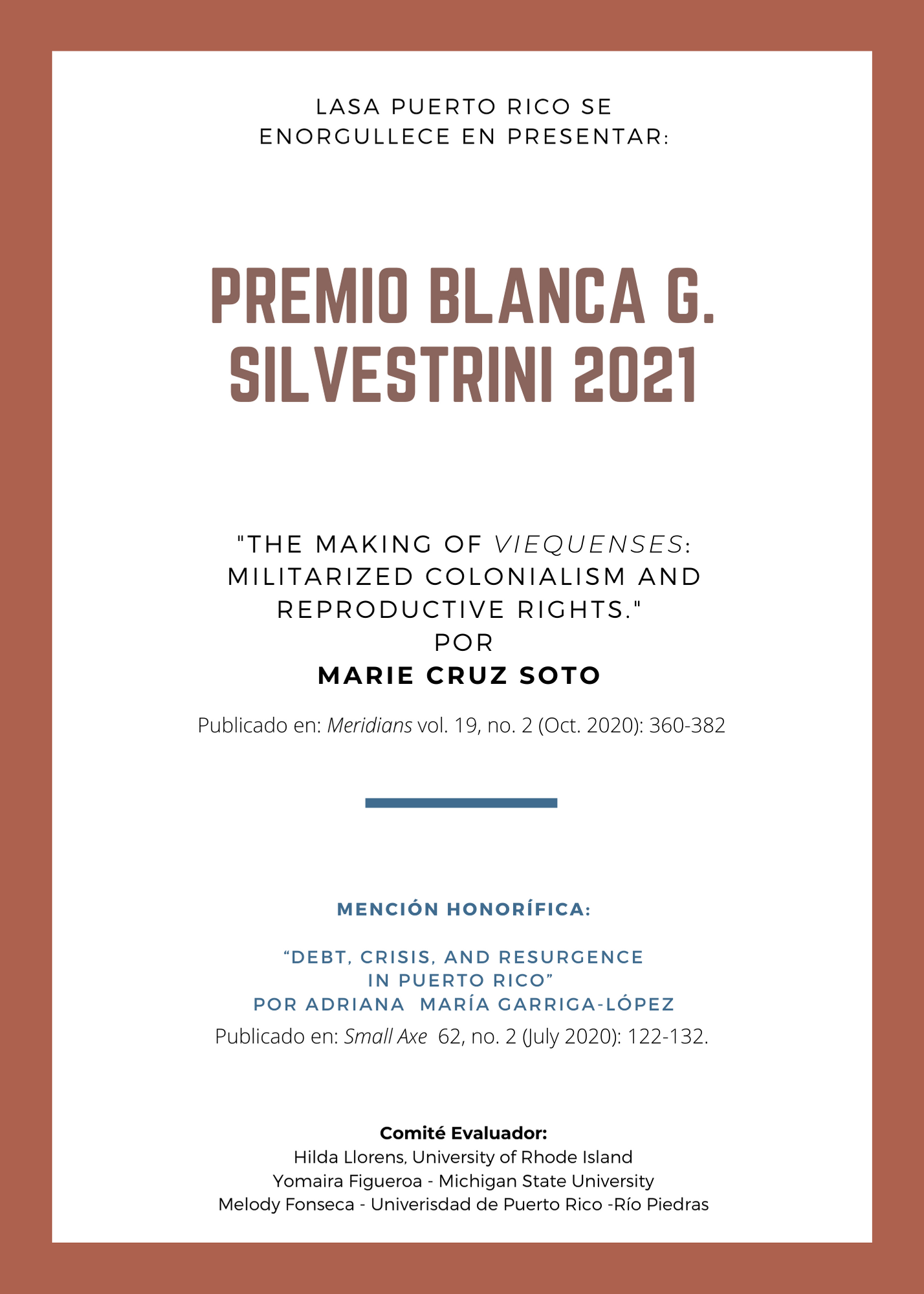
Adriana María Garriga-López's article, "Debt, Crisis, and Resurgence in Puerto Rico" has received honorable mention for the 2021 Blanca G. Silvestrini Award for Outstanding Article in Puerto Rican Studies. The article appeared in issue 64 of Small Axe.
Read the full article on Duke University Press' website and the abstract below:
This essay addresses the epistemic limits of crisis as a trope for thinking about the future of Puerto Rico in the context of fiscal austerity programs and the combined effects of multiple disasters. Small-scale agriculture and mutual aid offer models of resistance to US colonialism as the underlying power structure reinforcing debt and political subservience. What can be perceived or accomplished outside the self-perpetuating frame of crisis? This essay sketches the contours of a different approach, one that considers what Puerto Ricans owe to each other as well as accounts for those debts owed to Puerto Ricans that will likely never be paid.
Echarpalantismo: Neoliberal Subjectivities in the Colony of Puerto Rico
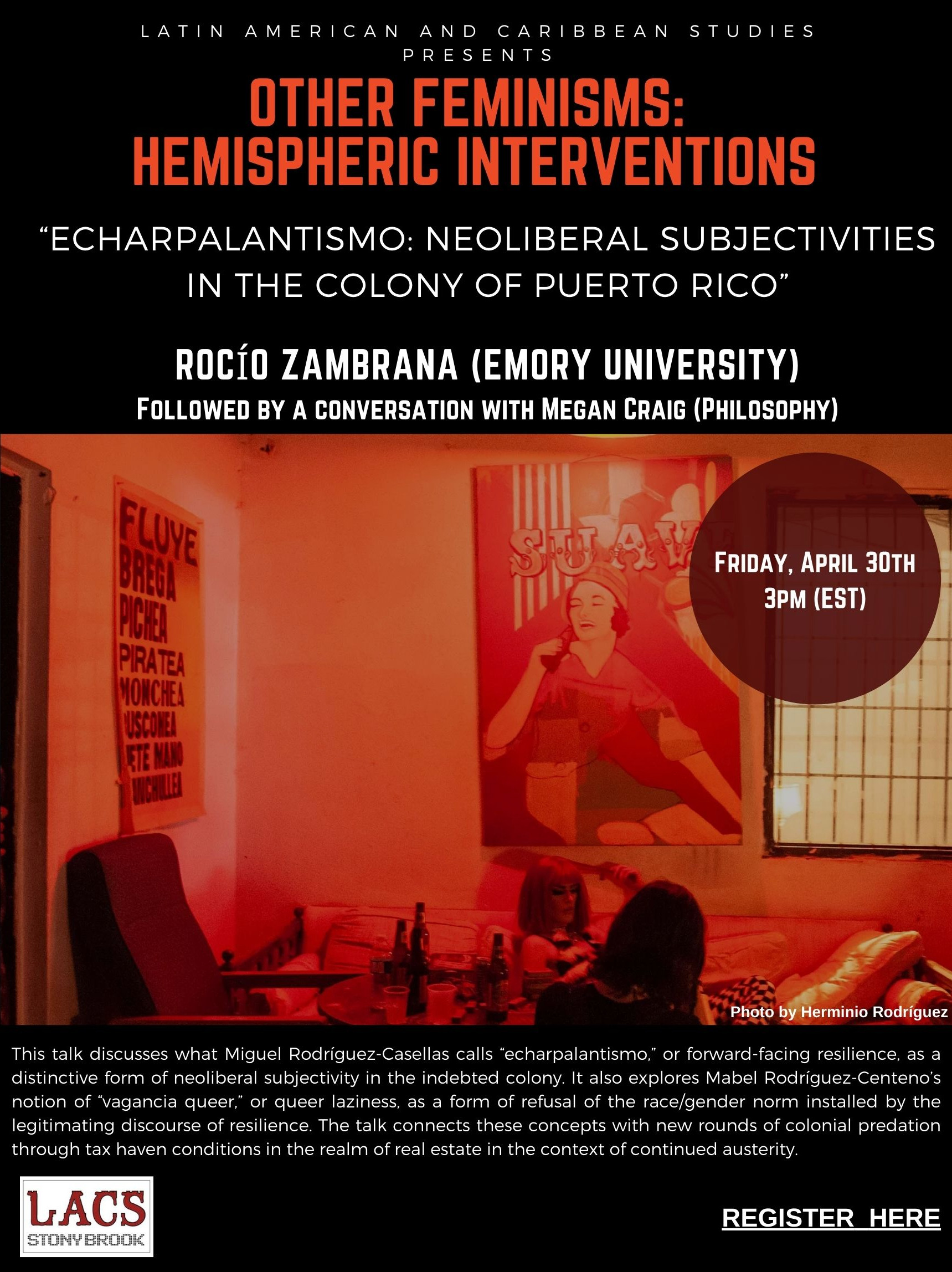
Date: Friday, April 30th
Time: 3:00 pm EST
LACS' Other Feminisms: Hemispheric Interventions series present: “Echarpalantismo: Neoliberal Subjectivities in the Colony of Puerto Rico” by Rocío Zambrana, Emory University. The event will be followed by a conversation with Megan Craig (Philosophy, SUNY Stony Brook)
Rocío Zambrana’s work examines critiques of capitalism and coloniality in various philosophical traditions, especially Marxism, Decolonial Thought, and Feminisms of the Américas (Latinx, Latin American, Caribbean). Her current work explores coloniality as the afterlife of colonialism, considering the articulation and deployment of race/gender as crucial to the development and resilience of capitalism. She considers the manifestations of coloniality in a colonial context by examining fiscally distressed Puerto Rico. She is the author of Colonial Debts: The Case of Puerto Rico (forthcoming 2021, Duke University Press) and Hegel’s Theory of Intelligibility (Chicago: The University of Chicago Press, 2015), in addition to articles, book chapters, and columns on related themes. She is Co-Editor, with Bonnie Mann, Erin McKenna, and Camisha Russell, of Hypatia: A Journal of Feminist Philosophy, and columnist for 80grados (San Juan, Puerto Rico).
Earth, World, Ethics: Conversations in Black and Caribbean Studies

For "Earth, World, Ethics: Conversations in Black and Caribbean Studies," the hosts asked participants to consider several thematics and questions, which the hosts locate in Black Critical Theory, Black Studies, Caribbean Studies, and Caribbean Poetics. How do we conceive of various formulations of disposability, life, nature, and the earth, against the apocalyptic tendencies in the discourses of the Anthropocene? What do we do with the category of the human vis-à-vis the senses—the senses and blackness, the senses and indigeneity, the senses and the elements? How do we think with geographical specificity in formulations of black ecology? What notion of nature renders our current ecological crisis so “monstrous” and “unnatural”? Must the thought of ecology at this geological and historico-political conjuncture yield its own “earth ethics”? Can we envisage a thinking of life and nature without falling prey to the violent history of vitalism and biologism?
April 30th @ 1-3 P.M. EDT
Tiffany Lethabo King | Georgia State University
Dixa Ramírez D'Oleo | Brown University
Selamawit Terrefe | Tulane University
Moderated by Ren Ellis Neyra | Wesleyan University
Zoom Conference: https://wesleyan.zoom.us/j/92843208608
May 7th @ 1-3 P.M. EDT
Denise Ferreira da Silva | University of British Columbia, Vancouver
R.A. Judy | University of Pittsburgh
Beatriz Santiago Muñoz | Artist
Moderated by Mlondi Zondi | Wesleyan University
Zoom Conference: https://wesleyan.zoom.us/j/92843208608
May 14th @ 1-3 P.M. EDT
Zakiyyah I. Jackson | University of Southern California
David Marriott | Penn State University
Ronald Mendoza de Jesús | University of Southern California
Moderated by Axelle Karera | Emory University
Zoom Conference: https://wesleyan.zoom.us/j/92843208608
Rosamond S. King to celebrate new collection with book launch party
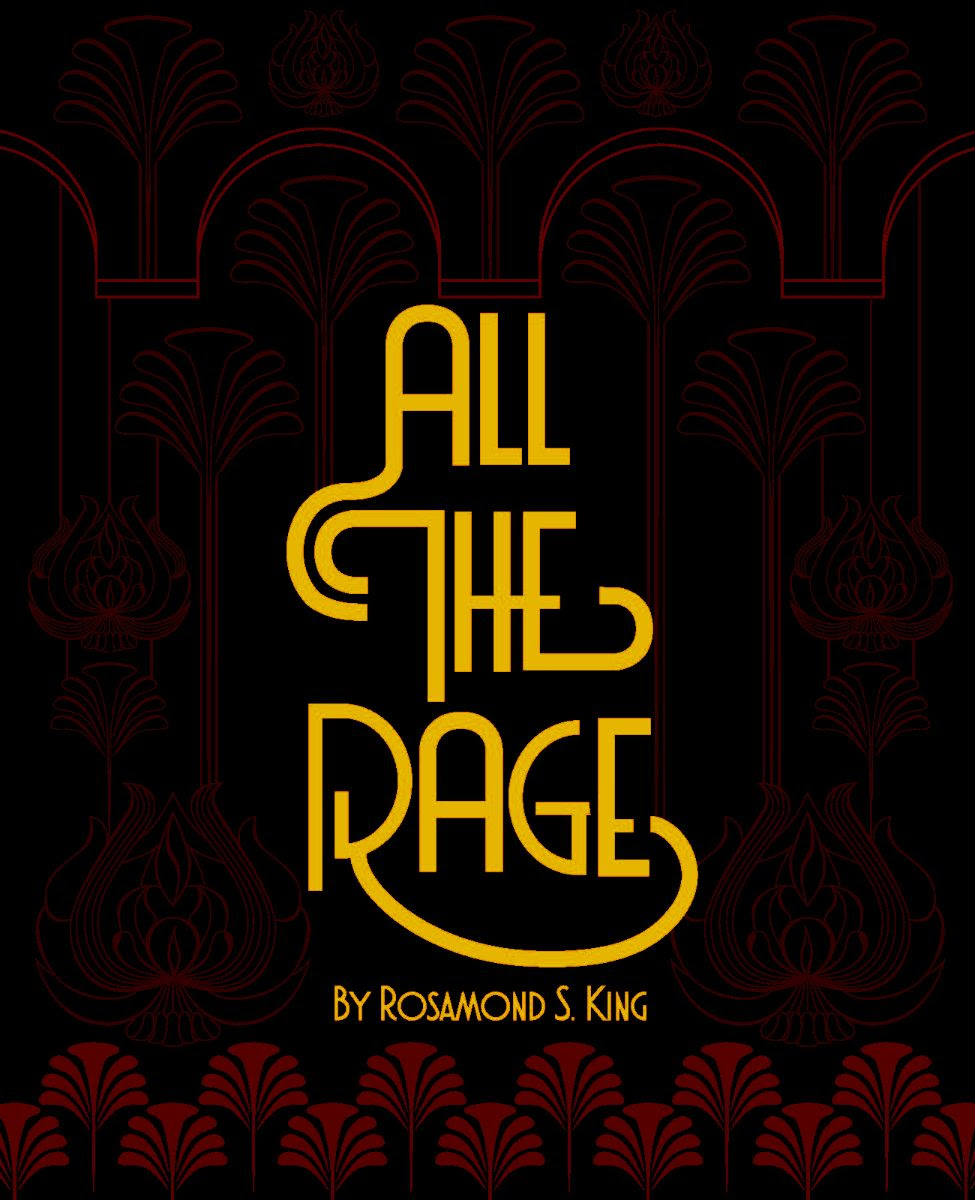
Date: Friday, April 9th
Time: 6:30 pm EST
Poet and sx salon creative editor Rosamond S. King will celebrate the launch of her new book, All the Rage, at a special edition of Gibney’s Living Gallery. RSVP here.
All the Rage addresses everyday pleasure as well as the present condition of racism in the United States—a time marked both by recurring police violence and intense artistic creativity—from a variety of perspectives: being Black, an immigrant, a woman, and queer. At its core dwells “Living in the Abattoir,” a series in which people of color live out their days as both workers and meat. All the Rage simultaneously invokes both anger at ongoing systemic violence and the frivolity of something that is, perhaps temporarily, “trending.” Read more & buy All the Rage here.
Off the Page: Julia Alvarez & Vanessa Pérez-Rosario in conversation

Date: Tuesday, April 20th
Time: 7pm EST
From the Kupferberg Center for the Arts website:
OFF THE PAGE: Conversations with Writers is a Queens College series produced by Kupferberg Center for the Arts, the Department of English, the Provost’s Office, and the Dean of the School of Arts and Humanities. Curated by QC professor, author and Small Axe managing editor Vanessa Pérez-Rosario.
This event with Julia Alvarez is funded in part by Poets & Writers through public funds from the New York City Department of Cultural Affairs, in partnership with the City Council.
Read more about the event and register here.
About Julia Alvarez
Born in New York City in 1950, Julia Alvarez’s parents returned to their native country, Dominican Republic, shortly after her birth. Ten years later, the family was forced to flee to the United States because of her father’s involvement in a plot to overthrow the dictator, Trujillo.
Alvarez has written novels (How the García Girls Lost Their Accents, In the Time of the Butterflies, ¡Yo!, In the Name of Salomé, Saving the World, Afterlife), collections of poems (Homecoming, The Other Side/ El Otro Lado, The Woman I Kept to Myself), nonfiction (Something to Declare, Once Upon A Quinceañera, and A Wedding in Haiti), and numerous books for young readers (including the Tía Lola Stories series, Before We Were Free, finding miracles, Return to Sender and Where Do They Go?).
Alvarez’s awards include the Pura Belpré and Américas Awards for her books for young readers, the Hispanic Heritage Award, and the F. Scott Fitzgerald Award. In 2013, she received the National Medal of Arts from President Obama.
CuCa3: Cuir Caribbean Voices/Voces Queer del Caribe
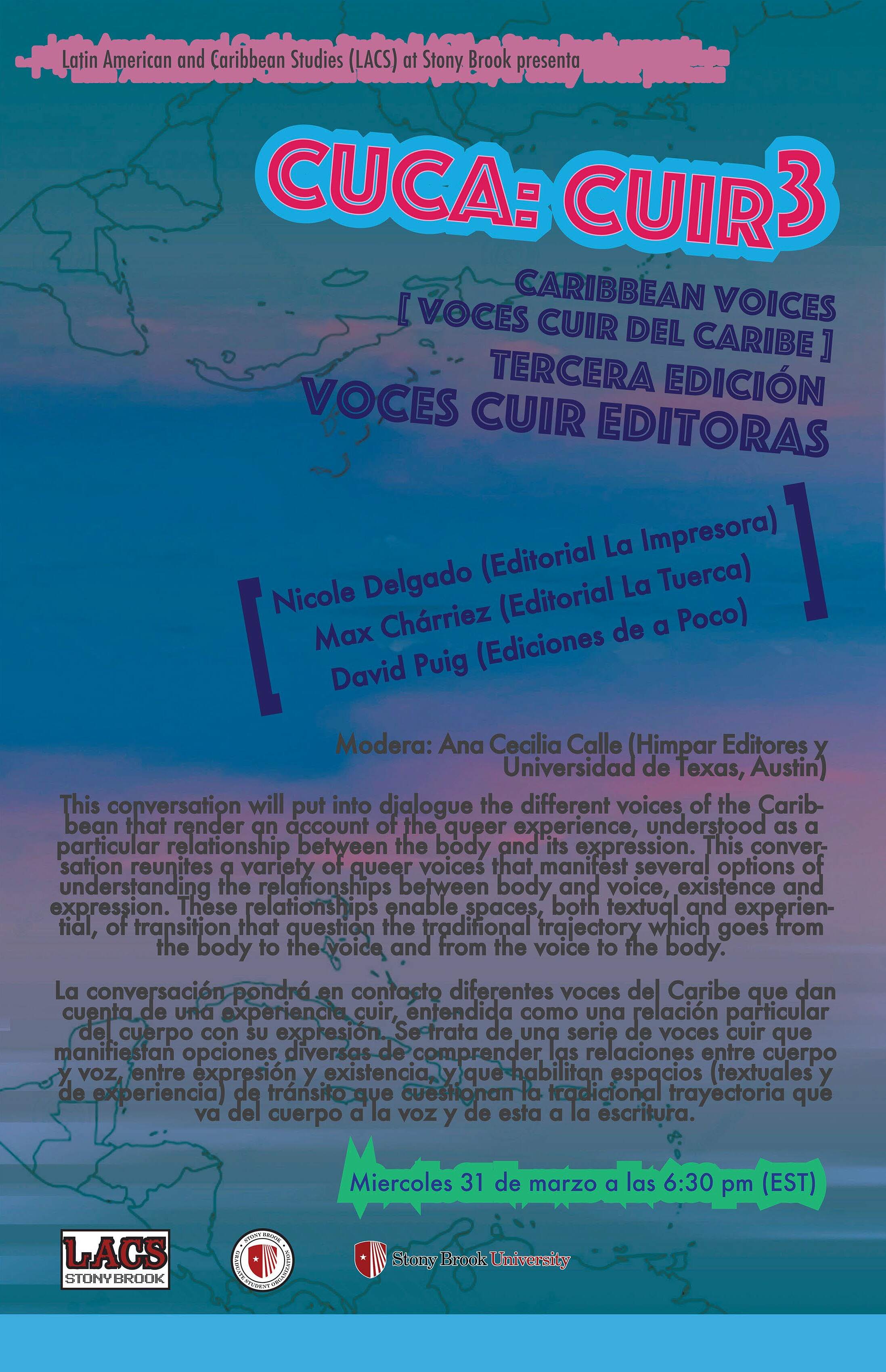
Date: Wednesday, March 31st
Time: 6:30 pm EST
From LACS Stony Brook:
CuCa Cuir is back! Join us for the third installment of this LACS' graduate student-initiated series. This session focuses on independent queer presses.
CuCa3: Cuir Caribbean Voices/ Voces Queer del Caribe
Voces Cuir Editoras
Organized by PhD candidate Mario Henao (Hispanic Languages and Literature)
Life Portrait & Libations: a Celebration of Colin Robinson

In remembrance of Trinidadian poet and LGBTQ+ advocate Colin Robinson, there will be an online memorial service that is open to all on Sunday 28th March. Please find the details of the event below. Read some of Robinson's poems that were published in sx salon here.
Life Portrait & Libations
All are invited to a Celebration of Colin:
Sunday 28 March 2021, 1pm Trinidad & NYC time
via Zoom Webinar:
https://us02web.zoom.us/j/81928208620?pwd=cWhGck1TVmo4Y3lOcmNLOEtFc29DZz09
Passcode: 423395
Instead of flowers, please contribute funds to the Colin Robinson Hard Head Award. To donate, please email caisott@gmali.com. For more information about the award, visit: https://caisott.org/hard-head-award.
Because so many people loved and worked with Colin, we've created a way everyone can share their remembrances. To upload a short video about Colin, visit: https://share.vidday.com/o-hlgsgk.
The invite PDF attached here includes the clickable zoom link, but you may find it difficult to upload to social media. To invite folks through social media, please share posts by CAISO - @CAISOTT on Twitter and Instagram; CAISO Sex & Gender Justice on FB.
Ian Randle Press publishes Methodologies in Caribbean Research on Gender and Sexuality
Ian Randle Press publishes Methodologies in Caribbean Research on Gender and Sexuality

A first of its kind in the English-speaking Caribbean, Methodologies in Caribbean Research on Gender and Sexuality brings together contributions from a variety of Caribbean-based and diasporic researchers and activists about the main methods used in existing feminist research practice. Edited by professors Kamala Kempadoo and Halimah A. F. DeShong and comprising 29 chapters organized around 7 main themes – History & Historiography; Methodologies for Feminist Organizing & Action Research; Researching Gender; Researching Sexualities; Researching the Visual & Cultural; Methods for Analysing Talk & Text; and Reflections on Positionality – this book brings together canonical texts on Caribbean gender and sexuality research methods and methodology, recent research on digital cultures and critical reflections on positionality in fieldwork. The multi-disciplinary collection reveals both the embrace of multiple methods by Caribbean researchers and the limitations that the need to produce detailed and comprehensive knowledge about gender and sexuality imposes on the research process.
It is an invaluable resource for university students, for teaching purposes in women, gender and sexuality studies, and methods courses.
Zora's Daughters co-hosts to facilitate "Honoring the Ancestors: Black Feminist Citational Praxis, an interactive workshop"
Zora's Daughters co-hosts to facilitate "Honoring the Ancestors: Black Feminist Citational Praxis, an interactive workshop"
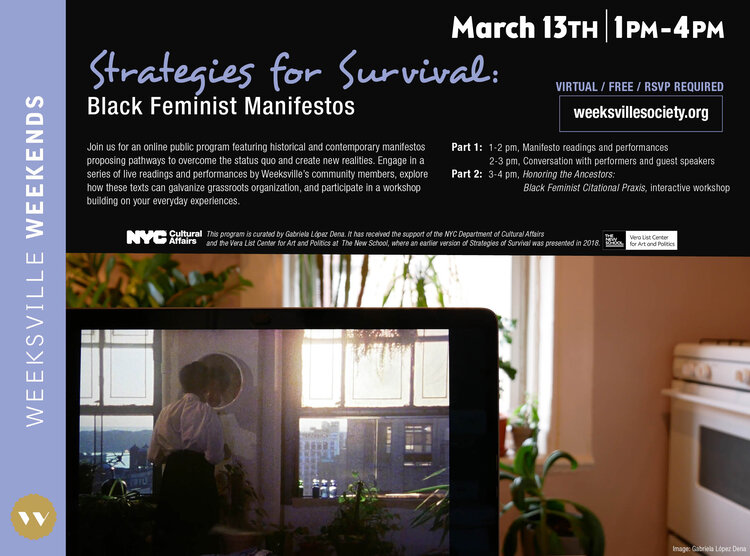
Date: Saturday, March 13th
Time: 3-4pm EST
sx editorial assistant Alyssa James will co-facilitate "Honoring the Ancestors: Black Feminist Citational Praxis, an interactive workshop" alongside her Zora's Daughters podcast co-host Brendane Tynes as part of Strategies for Survival: Black Feminist Manifestos. This series by Weeksville Heritage Center is an online public program engaging with a series of historical and contemporary manifestos resonant with the explosive reality we experience now. Zakiya Collier, a Project Archivist for the Weeksville Heritage Center, will also co-facilitate the event.
Written by Black feminist artists, activists, and writers and performed by Weeksville community members, these texts point to circumstances that are unacceptable and in need of change. But most importantly, they propose pathways to move forward in order to overcome the status quo and create new realities. In the midst of political uncertainty and a physically isolating pandemic, these statements offer visions that can help us connect with one another and transcend what feels like a never-ending crisis.
"Wayward Archives and Decolonial Interventions: Examining Intimate Histories with the Virgin Islands Studies Collective."

An anthropologist, an artist, a writer, and a philosopher collaboratively engaged the prison records of four Afro Caribbean women who led a 19th century labor riot in St. Croix, Danish West Indies (now U.S. Virgin Islands). Join the VI Studies Collective for a panel about intimate histories, collaborative research, and Black feminist decolonial archival interventions.
The VI Studies Collective consists of:
Tami Navarro, Associate Director, Barnard Center for Research on Women; Small Axe editorial committee member
La Vaughn Belle, Artist in Residence, University of the Virgin Islands
Hadiya Sewer, Research Fellow, African and African American Studies Program, Stanford University
Tiphanie Yanique, Associate Professor of English and Creative Writing, Emory University